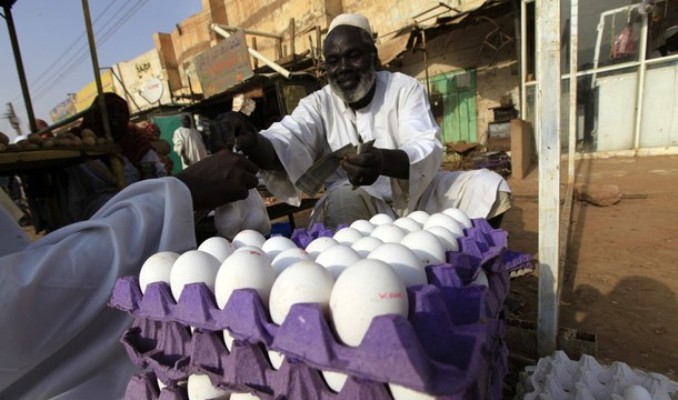Sudan announces 15-month economic austerity programme

October 24, 2018 (KHARTOUM) – The Sudanese Prime Minister and Minister of Finance Muataz Musa Wednesday said the economic reform policy includes a short-term stabilization programme besides a long-term one to achieve comprehensive development.
Speaking to lawmakers about the new economic policy, Musa said the 2019 budget would include 15-month austerity policies aiming to curb inflation, stabilizing the exchange rate, resolving the liquidity problem and combating corruption.
He pointed out that austerity measures would limit government expenditure on various items including the allocations of ministers, official delegations travelling abroad.
Muataz added the new measures provide to stop government donations and the free meals provided for official meetings and workshops as well as cancelling all government festivals.
According to the Prime Minister, the stabilization programme also aims at increasing oil, wheat and sugar production besides focusing on implementing infrastructure projects.
However, he didn’t mention whether or not the austerity measures would include a further lifting of government subsidies on basic goods and services such as bread, fuel and electricity.
Economic conditions in Sudan have been challenging since the secession of South Sudan in 2011 and the loss of the bulk of oil production and exports.
The withdrawal of South Sudan oil has compounded the difficult external environment, including debt arrears, limited access to external financing, U.S. sanctions, and the withdrawal of correspondent bank relations.
Earlier this year, Sudan began a series of economic reforms in line with IMF recommendations to try to bolster the economy, months after a U.S. decision to lift sanctions raised hopes that badly needed investment may return.
The reform policies included austerity measures containing removal of subsidies as the country struggles in the face of inflation running at 68% and acute shortage of hard currency that has sapped import activity.
Austerity measures in Sudan sparked sporadic public protests in February and March of this year leading to the detention of hundreds of demonstrators in the various Sudanese states.
Since a few years, the East African nation and the IMF have engaged in a Staff-Monitored Program (SMP) which they say would restore macroeconomic stability, strengthen social safety nets, and develop the required reforms to refocus the economy on its non-resource sector and lay the groundwork for sustainable economic growth.
The SMP is not supported by the use of the IMF’s financial resources; nor is it subject to the endorsement of the Executive Board of the fund.
(ST)
